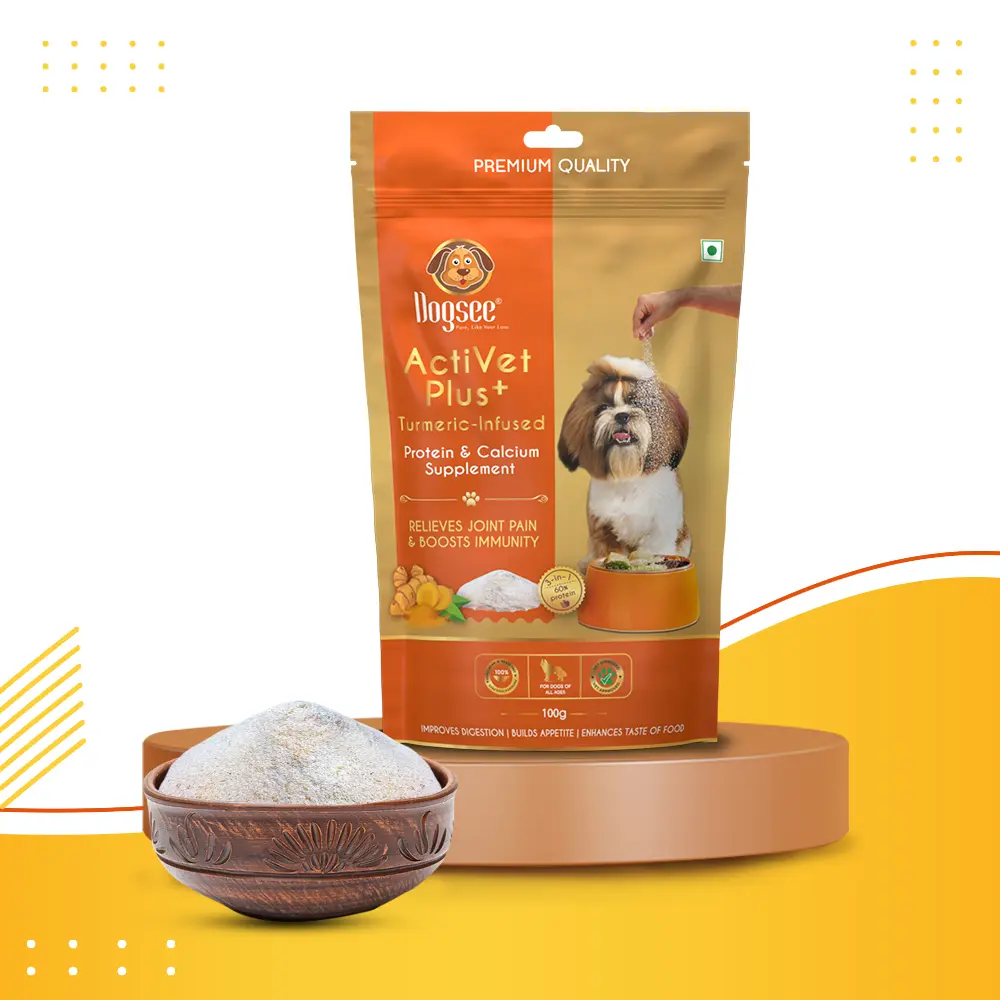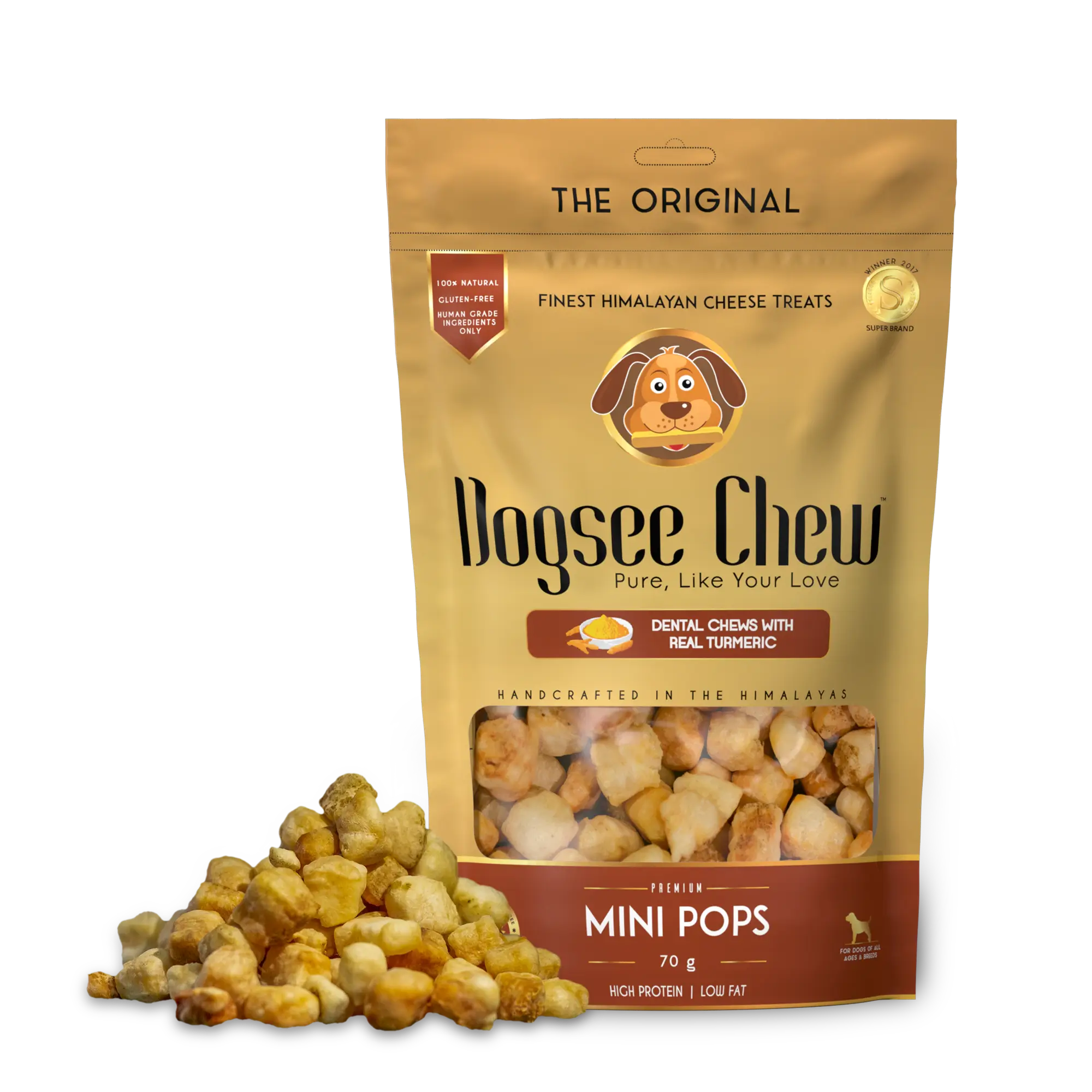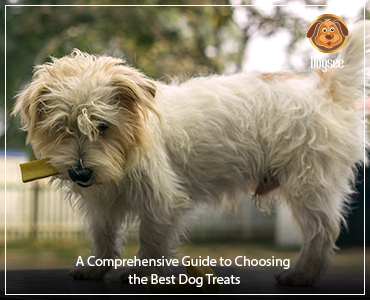
Are you concerned about your dog's health? Does your dog get sick frequently? What can you add to your dog's diet to help boost his immune system?
Well, this blog will address all of these concerns.
Dogs can become ill for a variety of reasons, including genetics, environmental factors, diet, and lifestyle. Dogs, on the other hand, may appear to become ill on a regular basis because they are frequently exposed to a wide range of potential pathogens and have a more sensitive immune system than humans.
Turmeric can be the best option to boost their immune system. Turmeric is a yellow spice commonly found in Indian and Middle Eastern cuisine. It has been used for thousands of years in traditional medicine as a natural remedy for a variety of ailments.
Turmeric contains a powerful compound called curcumin, which has potent anti-inflammatory and antioxidant properties. While humans have been using turmeric for its medicinal properties, it turns out that this spice is also beneficial for our furry friends.
Let’s move ahead and explore some surprising health benefits of turmeric for dogs and its uses.
1. Anti-Inflammatory Properties
Turmeric's most well-known benefit is its powerful anti-inflammatory properties. Inflammation is the body's natural response to injury or infection, but chronic inflammation can lead to various health problems in dogs. Chronic inflammation has been linked to conditions such as arthritis, allergies, and even cancer. Turmeric's curcumin compound has been shown to reduce inflammation in the body, making it an effective natural treatment for these conditions. Adding turmeric to your dog's diet can help reduce inflammation and promote overall health.
2. Anti-cancer Properties
Turmeric's curcumin compound has been shown to have anti-cancer properties. In studies, curcumin has been shown to help prevent the growth and spread of cancer cells. Additionally, turmeric has been shown to help reduce the side effects of chemotherapy and radiation therapy in dogs.
While turmeric is not a cure for cancer, adding turmeric dog treats to your dog's diet can help reduce their risk of developing cancer and improve their quality of life if they are undergoing cancer treatment.

3. Improves Skin and Coat Health
Turmeric has been shown to improve skin and coat health in dogs. Its anti-inflammatory properties can help reduce skin irritation and promote the healing of skin conditions such as hot spots and dermatitis.
Additionally, turmeric can help promote a healthy, shiny coat by reducing inflammation in the skin and improving overall skin health. Adding turmeric to your dog's diet can help keep their skin and coat healthy and looking great.
To learn more about some good products or dog health care tips, you can read 5 Natural Products for Common Dog Issues.
4. Relieves Allergies
Food and environmental allergens can cause problems for your dog. Turmeric should be included in your pet's diet to combat such threats. Turmeric mini pops from Dogsee Chew will help heal allergies and relieve itching.

5. Promotes Heart and Liver Health
Turmeric has been proven to lower bad cholesterol in the body as well as help regulate blood pressure and blood clotting. It also helps to protect the lining of blood vessels and arteries.
Consuming turmeric helps in the better production of bile, which is a digestive fluid that promotes easy digestion and good liver health.

Here are some more benefits of turmeric in your dog's diet.
Improved Digestion: Turmeric is mostly used as a flavoring agent for cooking meals and also as an antioxidant, contributing to healthy digestion.
Curcumin can help your dog to break down food by stimulating the production of more bile in the liver. This aids in the digestion of fats, which are a major part of a healthy dog's diet, so your dog may feel more comfortable after eating.
Weight Management: Turmeric has been shown to help regulate blood sugar levels and may be helpful for dogs who are overweight or obese.
Improved Cognitive Function: Turmeric has been shown to improve cognitive function in dogs. As dogs age, they may experience a decline in cognitive function, which can lead to problems such as memory loss and disorientation.
Now that we've explored the many benefits of turmeric in a dog's diet, you may be wondering how to incorporate it into your dog's meals.
Turmeric can be added to your dog's food in various ways. One easy way is to mix a small amount of turmeric powder into their food. Start with a small amount and gradually increase the amount over time.
You can also feed them turmeric treats or use Multivitamin Food Seasoning in their food.

Oral Health: Turmeric can help promote good oral health in dogs by reducing inflammation in the mouth and preventing the buildup of plaque and tartar on the teeth.
Some important points to remember while you add turmeric to your dog’s diet.
1. Start with small amounts: It is important to introduce turmeric to your dog's diet gradually. Start with small amounts and increase the dosage slowly over a period of several weeks.
2. Use high-quality turmeric: Make sure you use high-quality turmeric powder that is free from additives and preservatives.
3. Mix with other ingredients: Turmeric can be mixed with other dog-friendly ingredients to create a healthy and tasty supplement. For example, you can mix turmeric with coconut oil or plain yogurt.
4. Use as a topical treatment: Turmeric can also be used as a topical treatment for skin conditions. Mix turmeric powder with coconut oil and apply it to the affected area to soothe inflammation and irritation.
5. Consult with a veterinarian: It is always a good idea to consult with a veterinarian before adding any new supplements to your dog's diet. They can provide guidance on appropriate dosages and help you determine if turmeric is right for your dog's individual needs.
Note: Turmeric can offer some health benefits, but it should not be used as a replacement for veterinary care. If your dog is experiencing any health issues, always consult with a veterinarian first.
Frequently Asked Questions (FAQs):
1. Are there any side effects of giving turmeric to my dog?
Answer: In general, turmeric is safe for dogs and has few side effects. However, some dogs may experience digestive upset or allergic reactions. It is always best to consult with your veterinarian before adding any new supplements to your dog's diet.
2. Can I give my dog human turmeric capsules?
Answer: It is recommended to consult with a veterinarian before giving your dog human turmeric capsules. While turmeric can have health benefits for both humans and dogs, it's vital to ensure that you're using the appropriate dosage and form for your pet.
3. How much turmeric can I give my dog?
Answer: The recommended amount of turmeric for dogs varies depending on factors such as the dog's size, overall health, and any underlying health conditions. If your veterinarian approves the use of turmeric for your dog, they can advise you on the appropriate amount and frequency of administration.
4. How quickly does turmeric work for dogs?
Answer: Turmeric works quickly for acute symptoms, but it may take some time for noticeable effects to appear for chronic health issues. Don't get discouraged, and make sure you're feeding your dog the correct form of turmeric with no chemical additives.
We understand your love for your dog, and we always make sure that your love and care never go to waste.

In conclusion, turmeric is a powerful spice with many health benefits for dogs. Adding turmeric to your dog's diet can help reduce inflammation, improve digestion, prevent cancer, improve cognitive function, and promote healthy skin and coat.
If you're considering adding turmeric to your dog's diet, be sure to talk to your veterinarian first to ensure it's safe for your dog and to determine the appropriate dosage. With the right amount and frequency, turmeric can be a beneficial addition to your dog's diet.
Follow us on Instagram and Facebook for more interesting and informative pet-parenting guides.
We understand how much you love your dog. So, keep an eye out for our upcoming blogs to learn more about dog-related facts and guides.
 HELPFUL0 people found it helpful
HELPFUL0 people found it helpful
Related Blogs
Subscribe to Our Blogs
and never miss on the latest update!






















